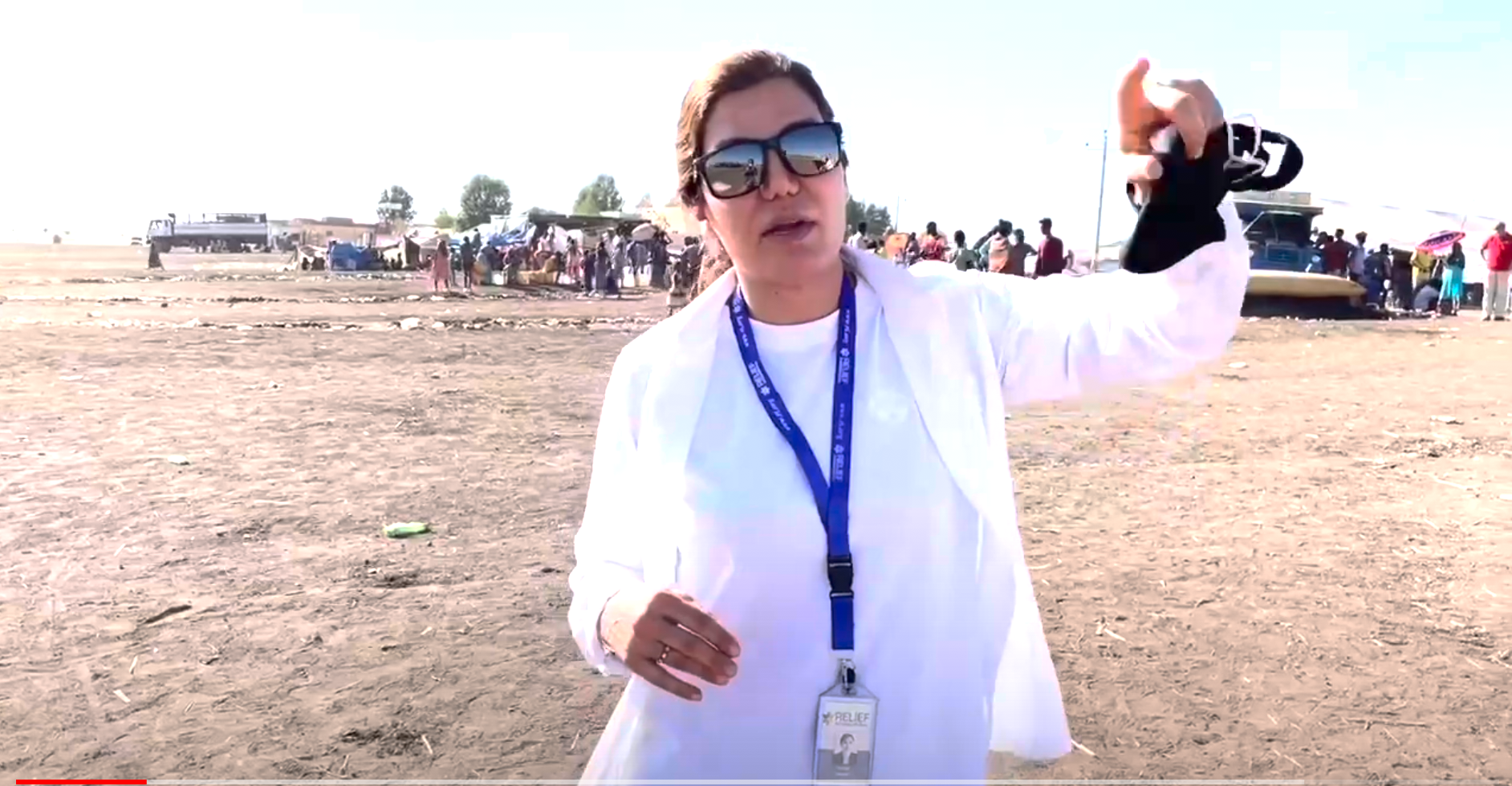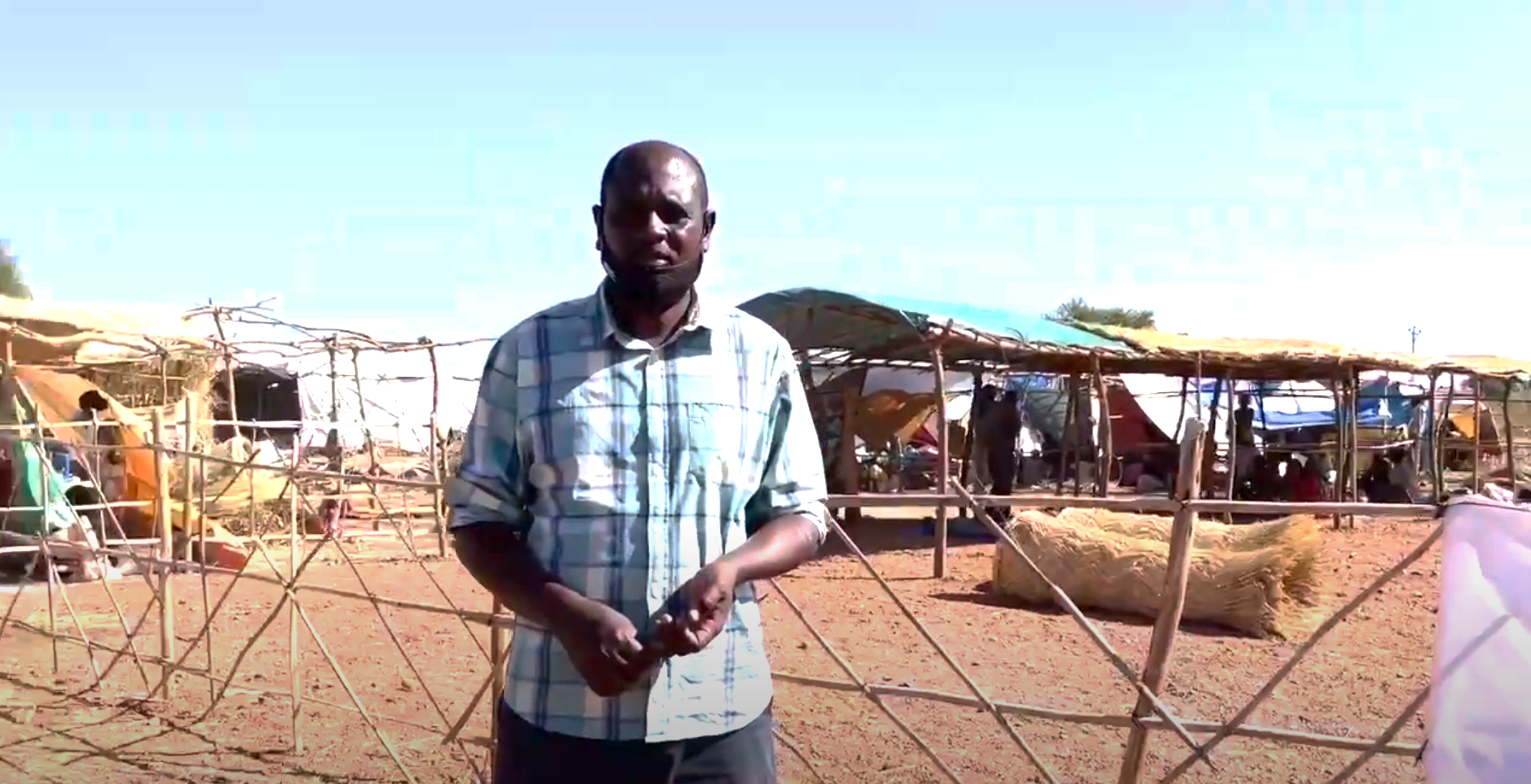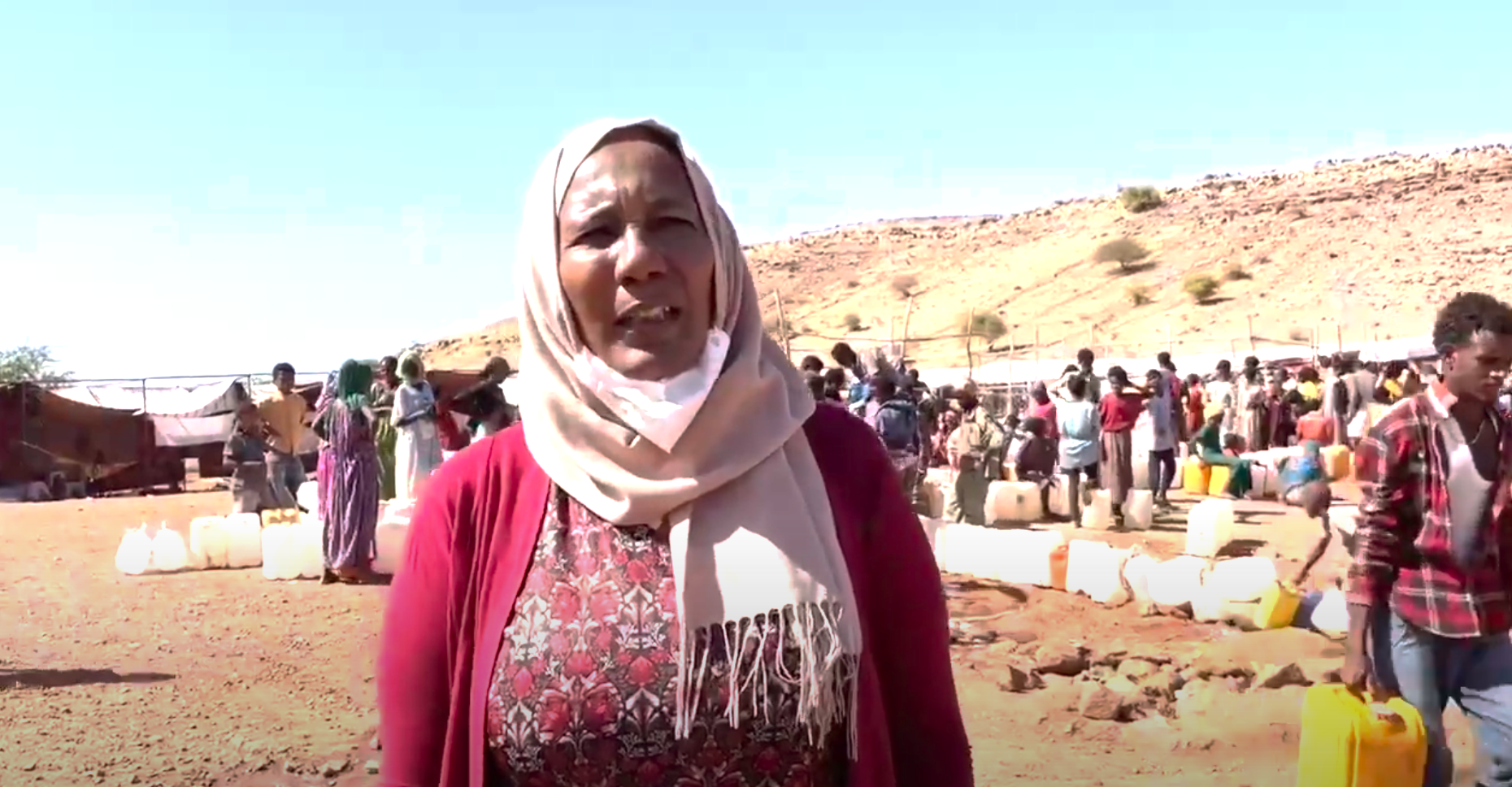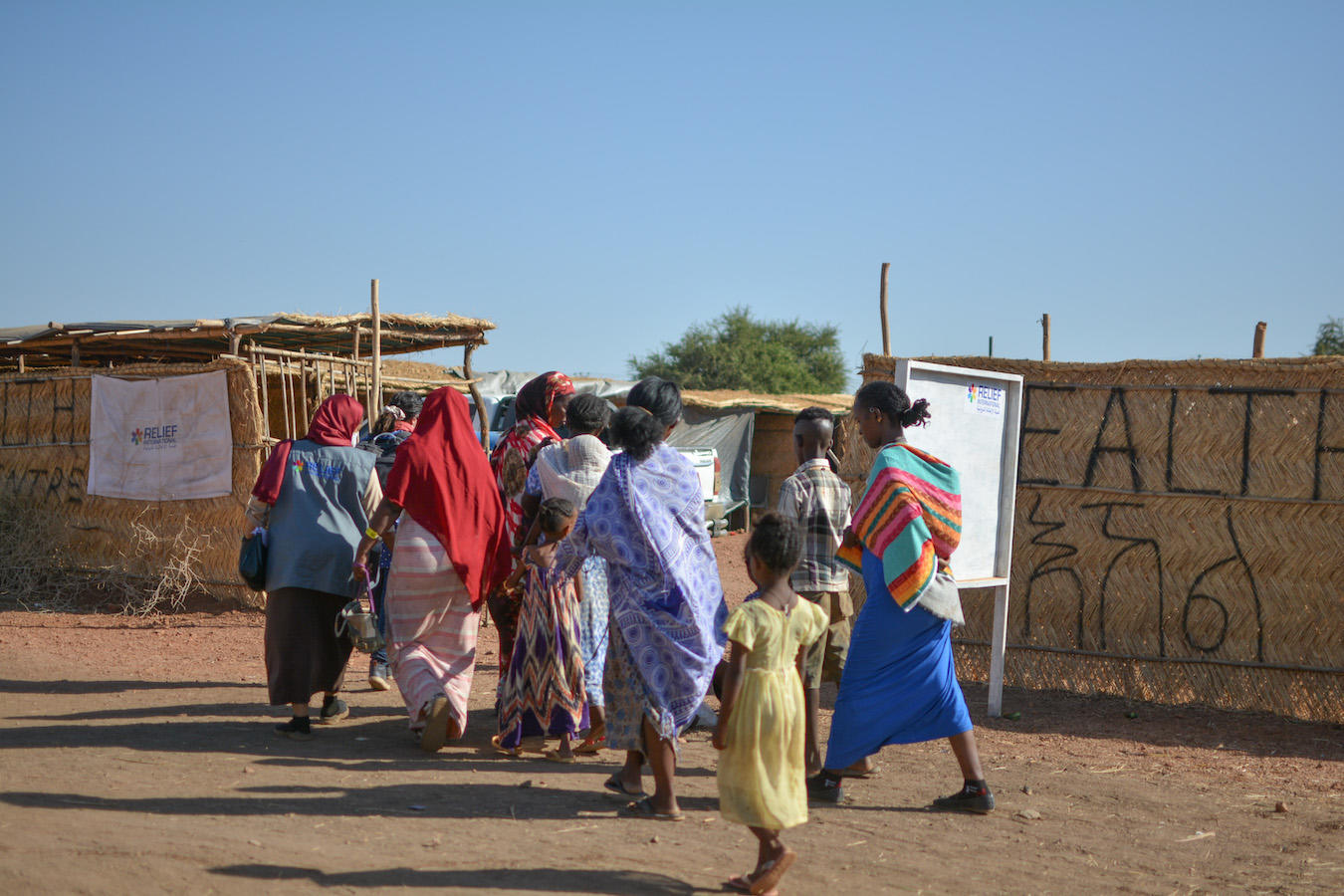Since November, more than 50,000 Ethiopians have fled Tigray as conflict in the region intensifies. Many of whom have embarked on hazardous journeys in search of safety, with some walking on foot for many days with little food or water to reach safety across the border. While those escaping from the northern region to Sudan have been leveling off to under 500 new arrivals per day, more recent groups coming from areas deeper inside Tigray, are still arriving into Sudan. Relief International’s teams on the ground are monitoring the unfolding crisis closely and are working to provide people in Um Rakuba settlement with the health services they need to survive. Watch as Relief International’s Global Humanitarian Director, Azadeh Hassani, explains what you need to know about this mounting conflict from the border.
Relief International Azadeh Hasani Reports on Tigray Crisis

Relief International’s Global Humanitarian Director Azadeh Hasani reports on the unfolding crisis from Hamdayet in East Sudan, which is the main border crossing used by refugees fleeing Tigray.
Hundreds of refugees are still arriving from Tigray via the Hamdayet border crossing in eastern Sudan each day, in addition to two other entry points in Sudan’s Kassala and Gedaref states.
The Hamdayet crossing is the main reception center set up by the Government of Sudan and the U.N. Refugee Agency. This is meant to be a registration center, however, many refugees are reluctant to leave Hamdayet as they are waiting for other family members to join them or are hoping that the situation stabilizes allowing them to go back home. As a result, the reception center which has very limited capacity and no facilities, is now is overpopulated and more than 12,000 Ethiopian refugees have settled here in the past month. Right now, Hamdayet is rapidly filling up with new refugee arrivals. Some of the refugees have been relocated to Um Rakuba, the main settlement allocated to Tigray hosting at least 20,000 refugees, roughly 45 miles away.
Um Rakuba camp, which was originally built to host 10000 refugees, is now hosting 20,752. Given the overcrowded conditions, refugees may be at greater risk of exposure to Covid-19 and other infectious diseases. Furthermore, the camp is located in remote corners of Sudan, making it increasingly difficult to deliver essential supplies in a timely manner. Relief International’s Emergency Team Lead Ali Eltayeb reports on the urgency behind this growing crisis from Um Rakuba camp in East Sudan.
Relief International - Ali Eltayeb Explains Urgency Behind Tigray Crisis

Relief International’s Emergency Team Lead Ali Eltayeb shares an update on the unfolding crisis from Um Rakuba camp which is currently hosting over 16,000 refugees.
Before the outbreak of the Tigray crisis, Sudan was already facing multiple crises including, rising food insecurity and a second surge of Covid-19 cases. Now, with more than 50,000 newly arrived refugees in the past month, Relief International, alongside our partners, is stepping up to provide refugees with emergency healthcare services.
Despite these challenges, Relief International set up up a primary health center, in Um Rakuba camp, to serve refugees arriving from Tigray. Our team received boxes of essential medical supplies and pharmaceuticals from the World Health Organization and RI’s internal stock, meaning that the clinic is fully-stocked and able to treat patients. Many of these patients are suffering from respiratory infections, eye, and skin diseases, or waterborne problems caused by their long journeys or conditions in the camp. Since the establishment of the clinic, RI staff have cared for over 1000 patients in Um Rakuba. Over the past week, 205 patients were seen, 68 of which complained of Diarrhea, 54 presented with Upper Respiratory Infections, and 22 patients needed treatment for Malaria. The need for reproductive health services is massive and our team is working hard to provide the services needed.
We are also hiring additional medical staff members in order to run a new four-room clinic as we scale up our response to this humanitarian crisis. Relief International’s Deputy Country Director in Sudan Eatizaz Yousif describes some of the most pressing needs in these camps, from Um Rakuba camp.
Relief International - Eatizaz Yousif Shares Needs Sparked By Tigray Crisis

Relief International’s Deputy Country Director in Sudan Eatizaz Yousif details the dire situation in Um Rakuba camp, which is currently hosting thousands of refugees, although more are expected to arrive in the next few weeks.
Relief International’s Deputy Country Director in Sudan Eatizaz Yousif details the dire situation in Um Rakuba camp, which is currently hosting thousands of refugees, although more are expected to arrive.
In Sudan’s Um Rakuba camp access to running water and electricity is virtually non-existent. There continue to be food shortages and not enough shelters, meaning many are living in makeshift tents built from grass and wood. Now that we go into winter, refugees will need better protection from the cold weather. Originally, the camp was designed to house 10,000 refugees and is now hosting more than its capacity. As refugees continue to arrive amid these challenging living conditions services must increase to keep up with the scale of the need.
In a region that is already host to millions of refugees, this crisis alone could threaten the lives more than two million people. Please donate today to help Relief International’s support refugees, displaced families, and people in fragile settings. Your gift will be used in places where the needs are greatest.
